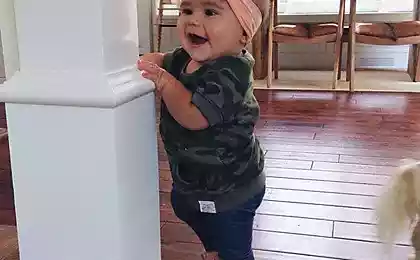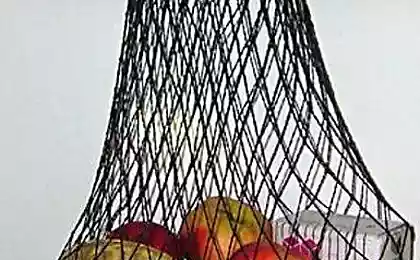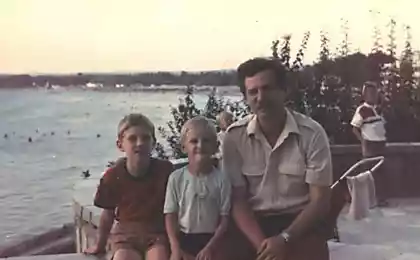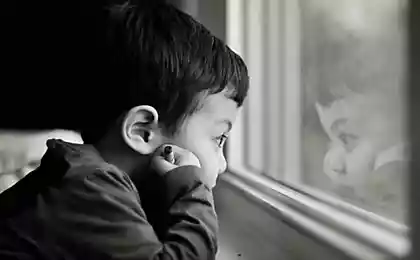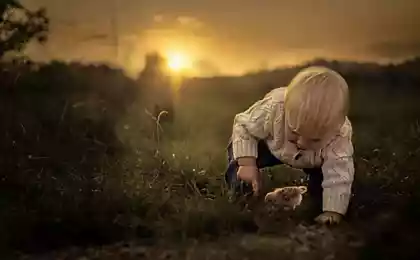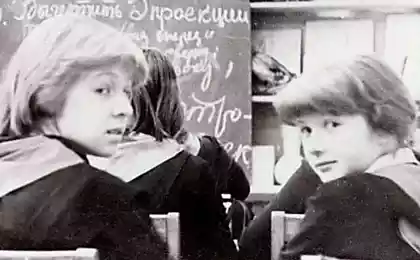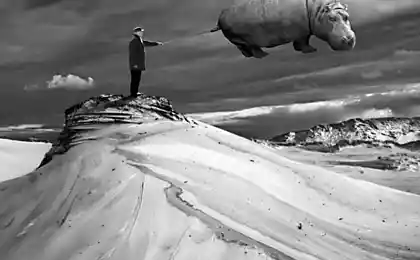627
Where does our childhood memories?
My memories are like gold in my purse, donated by the devil opens it, and there dry leaves. Jean-Paul Sartre
So we can grow our brain must be able to forget.
Childhood. River. Iridescent water. White sand. Dad teaches me to swim. So I kept in the water (of course, he supports me) and look around: there are huge splashes, strange parts tanned bodies in the water, in the distance, the forest. Here I go and I'm instantly under water — there is, incidentally, also interesting: the rays of light colored stones, the fry, which seems to be at hand. But I was immediately pulled out of the water and carry on the beach: warm sand, lying next to several smooth snags, spicy smells of the river. I no more than three. Or here's another: chladici. Rack up any stuff such as beads, colored glass, wrappers from candy and gum, will dig in the ground a small hole, will reset to their treasures, and will press everything it previously found the glass bottle and covered with dirt. No one ever then not found, but we loved doing these ladici. Think I was 5-6. My memory of the time of kindergarten reduced to that of individual points: drawing with your finger on the sweaty glass Windows, plaid shirt brother, dark winter street with red lights, the electric cars in the children's Park.
When I try to recall life before birth, it turns out to only see these glimpses into the closet of memory, despite the fact that I'm about thought then felt something and learning about the world in those days. Where did all those childhood memories, those years?
Eighteen million four hundred sixty seven thousand nine hundred thirty eight
Psychologists call this inevitable forgetting "childhood amnesia". On average, the memories of people reach the age when they were 3-3. 5 years, and everything that happened before that, it becomes a dark abyss. A leading expert on the development of memory from Emory University Dr. Patricia Bauer said:
This phenomenon demands our attention, because in it lies the paradox: many children remember well the events of his life, but as adults, they retain a small portion of his memories.
In the last few years scientists are particularly tightly dealt with this issue and I think they managed to unravel what happens in the brain when we lose memories of earlier years.
And it all started with Freud, who in 1899 coined to describe this phenomenon the term “childhood amnesia”. He argued that adults have forgotten their first years of life in the process of suppressing the disturbing sexual memories. While some psychologists have endorsed this statement, the most generally accepted explanation for childhood amnesia was down to the fact that up to seven years children simply are not able to form stable memories, although evidence to support this theory were negligible. For nearly 100 years, psychologists have suggested that memories of childhood can not survive in the first place because they are unable to be durable.
The late 1980s marked the beginning of the reformation in the field of child psychology. Bauer and other psychologists began to explore children's memory using a very simple way: in the eyes of the child built a very simple toy and broke it after the beep, and then observed whether the child imitate adult actions in the correct order, in the extended time range from several minutes to several months.
One experiment after another has shown that the memories of children 3 years and younger actually survive, albeit with restrictions. At the age of 6 months infants remember at least the last day; in the first 9 months of events are stored in the memory at least 4 weeks; at the age of two years — in the course of the year. A historical study of 1991, the year scientists discovered that a child of four and a half years could detail to remember a trip to Disney World, which took place 18 months before. However, about 6 years children begin to forget many of these early memories. Another experiment of 2005 year, which was conducted by Dr. Bauer with his colleagues, showed that children under the age of five and a half years, remembered more than 80% of the experience that they had before 3 years of age, while children who were seven and a half years, could remember less than 40% of what is happening to them in childhood.
This work exposed the contradictions that are at the heart of “childhood amnesia”: small children are able to remember events in the first few years of life, but most of these memories eventually vanish at a very fast pace, which does not seem on the mechanisms of forgetfulness, characteristic of adults.
Forty six million seventy nine thousand five hundred sixteen
Puzzled by this contradiction, researchers began to speculate: maybe for lasting memories, we must master the speech or consciousness, in General, to acquire the fact that not too developed in childhood. But, despite the fact that oral communication and self-awareness certainly enhance human memory, their absence cannot fully explain the phenomenon of “childhood amnesia”. In the end, some of the animals that have rather large brains relative to their bodies, but do not have language and our consciousness level, also lose memories that relate to their infancy (e.g. rats and mice).
Conjecture lasted as long as scientists did not pay attention to the most important organ involved in the process of memory — our brain. From this point on, one after another began to appear research, explaining the reason for the disappearance of our memories.
The fact that between birth and adolescence the brain's structure continue to develop. With a massive wave of growth in the brain acquires a vast number of neural connections, which decline as we age (at a certain stage, we just need this “neural boom” — to quickly adapt to our world and to learn the most necessary things; more of this with us does not happen).
So, as found by Bauer, this specific adaptability of the brain has its price. While the brain is undergoing a protracted development after birth outside the womb, a large and complex network of neurons in the brain that create and maintain our memories, she is still under construction, so it is not able to form memories in the same way as does the adult human brain... As a result, long-term memories formed during the first years of our lives, are the least sustainable of all that we have for a life time, and are prone to disintegrate during maturation.
Three million nine hundred two thousand three hundred forty five
A year ago, the neurologist from children's hospital of Toronto Paul Frankland and his colleagues published a study of "hippocampal Neurogenesis regulates the process of forgetting in infancy and adulthood", demonstrating another reason for "childhood amnesia". According to scientists, the memories not only deteriorate, but also become hidden. A few years ago Frankland and his wife, who is also a neurologist, began to notice that the mice they studied, for certain types of memory tests, she deteriorated after life in a cage with a wheel. Scientists have attributed this to the fact that running on the wheel promotes neurogenesis — the process of the emergence and growth of whole new neurons in the hippocampus region of the brain that is important for memory. But at the time, how the adult neurogenesis of the hippocampus probably contributes to the ability to learn and remember, it can be related to the process of forgetting during growth of the organism. Just like in the forest can grow only a certain number of trees, the hippocampus is able to accommodate a limited number of neurons. The result is something that happens in our lives all the time: new brain cells displace other neurons from their territory or sometimes even completely replace them, which in turn leads to the restructuring of mental schema that can store certain memories.Scientists assume that especially high levels of neurogenesis in infancy was partly responsible for childhood amnesia.
In addition to experiments with running wheel, the researchers used Prozac, which stimulates the growth of nerve cells. The mice that were given the drug began to forget the experiments that had with them before that, while individuals not receiving medications, all remembered and well-oriented in familiar conditions. On the contrary, when researchers prevented neurogenesis in young animals by means of genetic engineering, in young animals began to form much more stable memories.
However, Frankland and Jocelyn went further: they decided to carefully examine how neurogenesis changes the structure of the brain and what happens to the old cells. Their last experiment worthy of the most daring conjectures of science fiction writers: using the virus, scientists inserted the DNA of a gene that is able to encode protein on fluorescence emission. As shown by the glowing colors, the new cells do not replace the old, rather, they join the existing scheme.
This rebuilding of memory circuits means that at a time like some of our childhood memories do leave, others are stored in encrypted refracted. Apparently, this explains the difficulty that sometimes we are given something to remember.
But even if we manage to unravel the tangles of several different memories, we will never be able to fully trust resurrected the paintings — some of them may be partially or completely fabricated. This confirms the research of Elizabeth Loftus from the University of California, Irvine, through which it became known that our earliest memories are insoluble mixture of true memories, stories, which we absorbed from others, and imaginary scenes, invented by the subconscious.
Fifty six million one hundred sixteen thousand five hundred ninety seven
In the experiment, Loftus and her colleagues presented volunteers a few short stories about their childhood told by relatives. Without the knowledge of the participants in the study, the researchers included one invented a story that, in fact, was a fiction — losing at the age of five in the Mall. However, a quarter of volunteers said that they remember about it. And even when they were told that one of the stories is fictional, some participants were unable to determine that it was a story about the Mall.
Science journalist, Deputy chief editor of Scientific American, Ferris Jabr (Ferris Jabr) muses on this account:
When I was little I got lost at Disneyland. Here's what I remember: it was December, and I watched the progress of railway trains through the Christmas village. When I turned around, my parents disappeared. My body was cold sweat. I started to sob and roam the Park in search of moms and dads. A stranger came up to me and took the giant buildings, filled with television screens with live video security cameras Park. If I had seen his parents on one of these screens? No. We returned to the train, where I found them. I ran to him with joy and relief.
Recently for the first time in a long time I asked my mother what she remembers about that day at Disneyland. She said that it was spring or summer, and that was the last time she saw me with a remote control boat from the attraction “Jungle Cruise” and not near a railway. Once they realized that I was lost, they went straight to the center of the lost and found. The Park Ranger actually found me and brought me to this center where I quite eating ice cream, and found parents. Of course, no evidence of her or my memories could not be found, but we are left with something far more elusive: these little embers of the past embedded in our consciousness, shimmering like fool's gold.
Yes, we lose our childhood memories, to be able to grow and develop further. But to be honest, I don't see that big trouble. The most expensive, the most important thing we always take with us into adulthood: the smell of mom's perfume, feeling the heat of her hands, cocky smile of his father, the brilliant river and the magical feeling of a new day all those chladici childhood that remain with us until the end. published
P. S. And remember, only by changing their consumption — together we change the world! ©
Join us in Facebook and in Vkontakte, and we're Classmates
Source: monocler.ru/kuda-uhodit-nasha-detskaya-pamyat/
So we can grow our brain must be able to forget.
Childhood. River. Iridescent water. White sand. Dad teaches me to swim. So I kept in the water (of course, he supports me) and look around: there are huge splashes, strange parts tanned bodies in the water, in the distance, the forest. Here I go and I'm instantly under water — there is, incidentally, also interesting: the rays of light colored stones, the fry, which seems to be at hand. But I was immediately pulled out of the water and carry on the beach: warm sand, lying next to several smooth snags, spicy smells of the river. I no more than three. Or here's another: chladici. Rack up any stuff such as beads, colored glass, wrappers from candy and gum, will dig in the ground a small hole, will reset to their treasures, and will press everything it previously found the glass bottle and covered with dirt. No one ever then not found, but we loved doing these ladici. Think I was 5-6. My memory of the time of kindergarten reduced to that of individual points: drawing with your finger on the sweaty glass Windows, plaid shirt brother, dark winter street with red lights, the electric cars in the children's Park.
When I try to recall life before birth, it turns out to only see these glimpses into the closet of memory, despite the fact that I'm about thought then felt something and learning about the world in those days. Where did all those childhood memories, those years?
Eighteen million four hundred sixty seven thousand nine hundred thirty eight
Psychologists call this inevitable forgetting "childhood amnesia". On average, the memories of people reach the age when they were 3-3. 5 years, and everything that happened before that, it becomes a dark abyss. A leading expert on the development of memory from Emory University Dr. Patricia Bauer said:
This phenomenon demands our attention, because in it lies the paradox: many children remember well the events of his life, but as adults, they retain a small portion of his memories.
In the last few years scientists are particularly tightly dealt with this issue and I think they managed to unravel what happens in the brain when we lose memories of earlier years.
And it all started with Freud, who in 1899 coined to describe this phenomenon the term “childhood amnesia”. He argued that adults have forgotten their first years of life in the process of suppressing the disturbing sexual memories. While some psychologists have endorsed this statement, the most generally accepted explanation for childhood amnesia was down to the fact that up to seven years children simply are not able to form stable memories, although evidence to support this theory were negligible. For nearly 100 years, psychologists have suggested that memories of childhood can not survive in the first place because they are unable to be durable.
The late 1980s marked the beginning of the reformation in the field of child psychology. Bauer and other psychologists began to explore children's memory using a very simple way: in the eyes of the child built a very simple toy and broke it after the beep, and then observed whether the child imitate adult actions in the correct order, in the extended time range from several minutes to several months.
One experiment after another has shown that the memories of children 3 years and younger actually survive, albeit with restrictions. At the age of 6 months infants remember at least the last day; in the first 9 months of events are stored in the memory at least 4 weeks; at the age of two years — in the course of the year. A historical study of 1991, the year scientists discovered that a child of four and a half years could detail to remember a trip to Disney World, which took place 18 months before. However, about 6 years children begin to forget many of these early memories. Another experiment of 2005 year, which was conducted by Dr. Bauer with his colleagues, showed that children under the age of five and a half years, remembered more than 80% of the experience that they had before 3 years of age, while children who were seven and a half years, could remember less than 40% of what is happening to them in childhood.
This work exposed the contradictions that are at the heart of “childhood amnesia”: small children are able to remember events in the first few years of life, but most of these memories eventually vanish at a very fast pace, which does not seem on the mechanisms of forgetfulness, characteristic of adults.
Forty six million seventy nine thousand five hundred sixteen
Puzzled by this contradiction, researchers began to speculate: maybe for lasting memories, we must master the speech or consciousness, in General, to acquire the fact that not too developed in childhood. But, despite the fact that oral communication and self-awareness certainly enhance human memory, their absence cannot fully explain the phenomenon of “childhood amnesia”. In the end, some of the animals that have rather large brains relative to their bodies, but do not have language and our consciousness level, also lose memories that relate to their infancy (e.g. rats and mice).
Conjecture lasted as long as scientists did not pay attention to the most important organ involved in the process of memory — our brain. From this point on, one after another began to appear research, explaining the reason for the disappearance of our memories.
The fact that between birth and adolescence the brain's structure continue to develop. With a massive wave of growth in the brain acquires a vast number of neural connections, which decline as we age (at a certain stage, we just need this “neural boom” — to quickly adapt to our world and to learn the most necessary things; more of this with us does not happen).
So, as found by Bauer, this specific adaptability of the brain has its price. While the brain is undergoing a protracted development after birth outside the womb, a large and complex network of neurons in the brain that create and maintain our memories, she is still under construction, so it is not able to form memories in the same way as does the adult human brain... As a result, long-term memories formed during the first years of our lives, are the least sustainable of all that we have for a life time, and are prone to disintegrate during maturation.
Three million nine hundred two thousand three hundred forty five
A year ago, the neurologist from children's hospital of Toronto Paul Frankland and his colleagues published a study of "hippocampal Neurogenesis regulates the process of forgetting in infancy and adulthood", demonstrating another reason for "childhood amnesia". According to scientists, the memories not only deteriorate, but also become hidden. A few years ago Frankland and his wife, who is also a neurologist, began to notice that the mice they studied, for certain types of memory tests, she deteriorated after life in a cage with a wheel. Scientists have attributed this to the fact that running on the wheel promotes neurogenesis — the process of the emergence and growth of whole new neurons in the hippocampus region of the brain that is important for memory. But at the time, how the adult neurogenesis of the hippocampus probably contributes to the ability to learn and remember, it can be related to the process of forgetting during growth of the organism. Just like in the forest can grow only a certain number of trees, the hippocampus is able to accommodate a limited number of neurons. The result is something that happens in our lives all the time: new brain cells displace other neurons from their territory or sometimes even completely replace them, which in turn leads to the restructuring of mental schema that can store certain memories.Scientists assume that especially high levels of neurogenesis in infancy was partly responsible for childhood amnesia.
In addition to experiments with running wheel, the researchers used Prozac, which stimulates the growth of nerve cells. The mice that were given the drug began to forget the experiments that had with them before that, while individuals not receiving medications, all remembered and well-oriented in familiar conditions. On the contrary, when researchers prevented neurogenesis in young animals by means of genetic engineering, in young animals began to form much more stable memories.
However, Frankland and Jocelyn went further: they decided to carefully examine how neurogenesis changes the structure of the brain and what happens to the old cells. Their last experiment worthy of the most daring conjectures of science fiction writers: using the virus, scientists inserted the DNA of a gene that is able to encode protein on fluorescence emission. As shown by the glowing colors, the new cells do not replace the old, rather, they join the existing scheme.
This rebuilding of memory circuits means that at a time like some of our childhood memories do leave, others are stored in encrypted refracted. Apparently, this explains the difficulty that sometimes we are given something to remember.
But even if we manage to unravel the tangles of several different memories, we will never be able to fully trust resurrected the paintings — some of them may be partially or completely fabricated. This confirms the research of Elizabeth Loftus from the University of California, Irvine, through which it became known that our earliest memories are insoluble mixture of true memories, stories, which we absorbed from others, and imaginary scenes, invented by the subconscious.
Fifty six million one hundred sixteen thousand five hundred ninety seven
In the experiment, Loftus and her colleagues presented volunteers a few short stories about their childhood told by relatives. Without the knowledge of the participants in the study, the researchers included one invented a story that, in fact, was a fiction — losing at the age of five in the Mall. However, a quarter of volunteers said that they remember about it. And even when they were told that one of the stories is fictional, some participants were unable to determine that it was a story about the Mall.
Science journalist, Deputy chief editor of Scientific American, Ferris Jabr (Ferris Jabr) muses on this account:
When I was little I got lost at Disneyland. Here's what I remember: it was December, and I watched the progress of railway trains through the Christmas village. When I turned around, my parents disappeared. My body was cold sweat. I started to sob and roam the Park in search of moms and dads. A stranger came up to me and took the giant buildings, filled with television screens with live video security cameras Park. If I had seen his parents on one of these screens? No. We returned to the train, where I found them. I ran to him with joy and relief.
Recently for the first time in a long time I asked my mother what she remembers about that day at Disneyland. She said that it was spring or summer, and that was the last time she saw me with a remote control boat from the attraction “Jungle Cruise” and not near a railway. Once they realized that I was lost, they went straight to the center of the lost and found. The Park Ranger actually found me and brought me to this center where I quite eating ice cream, and found parents. Of course, no evidence of her or my memories could not be found, but we are left with something far more elusive: these little embers of the past embedded in our consciousness, shimmering like fool's gold.
Yes, we lose our childhood memories, to be able to grow and develop further. But to be honest, I don't see that big trouble. The most expensive, the most important thing we always take with us into adulthood: the smell of mom's perfume, feeling the heat of her hands, cocky smile of his father, the brilliant river and the magical feeling of a new day all those chladici childhood that remain with us until the end. published
P. S. And remember, only by changing their consumption — together we change the world! ©
Join us in Facebook and in Vkontakte, and we're Classmates
Source: monocler.ru/kuda-uhodit-nasha-detskaya-pamyat/
